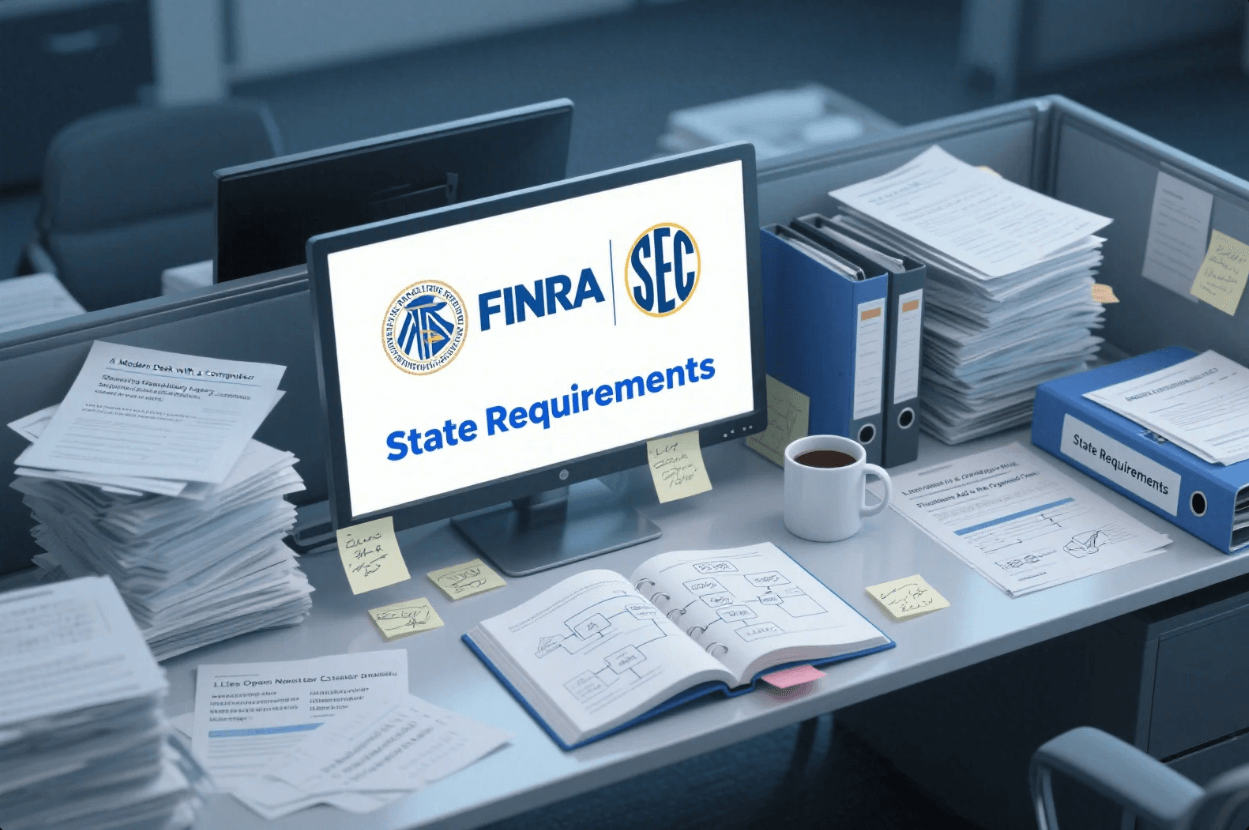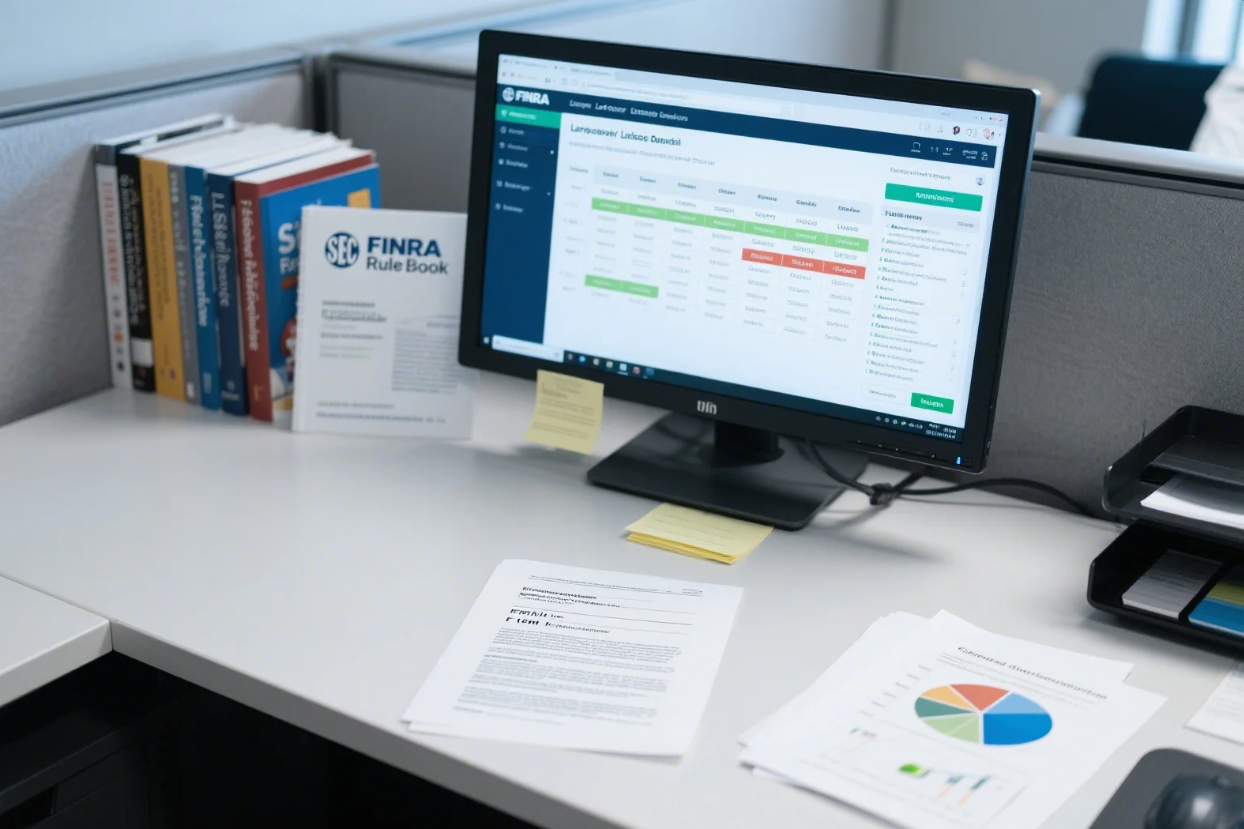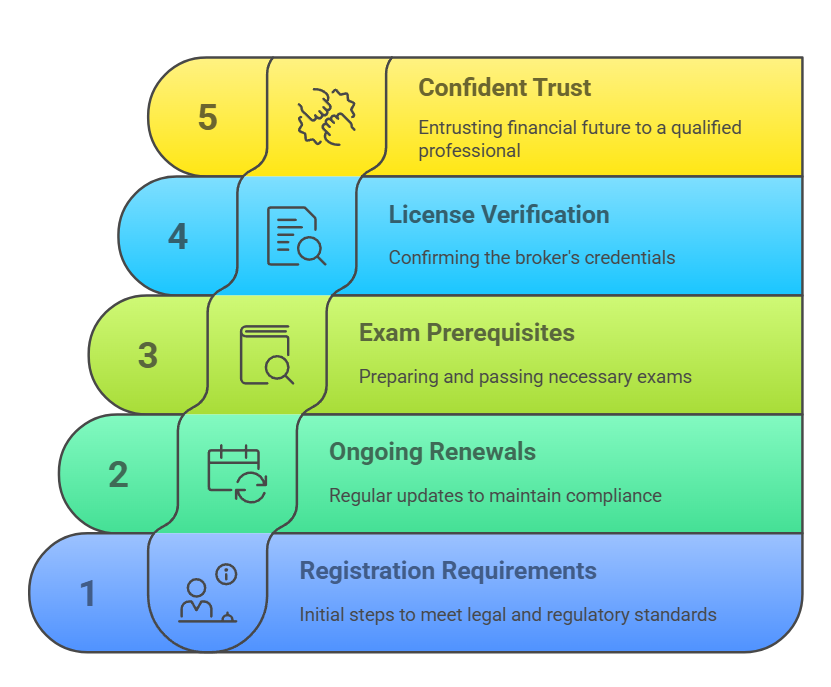
What I Learned About the Financial Broker License Process
I used to think getting a financial broker license was just about filling out forms and calling it a day. Then I started digging, and wow, there’s a whole ecosystem of FINRA guidelines, SEC rules, and state-by-state nuances. Let me share what I discovered—and why it matters if you’re looking for top-tier financial advice.
My First Steps With A Financial Broker License

I remember scanning through the broker-dealer registration process for the first time and feeling a bit overwhelmed. Between FINRA’s membership requirements (FINRA) and the SEC’s oversight (SEC.gov), there were countless details to manage. I get a lot of questions about the financial broker license in one breath: how long the process takes, whether I need a sponsor, which exams to pass, how much the fees run, and if it’s recognized across multiple states.
But once I really dug in, I realized it’s not something you do casually. After all, many high-net-worth clients—maybe like you—prefer working with fully licensed professionals who follow strict guidelines and demonstrate expertise. Who wants to trust their portfolio to someone who skipped a crucial step?
Key Requirements And Exams
Most would-be brokers need to pass certain qualification exams before handling securities trades. The Series 7 (General Securities Representative exam) is one of the most common licenses, covering all sorts of stocks and bonds (Investopedia). There’s also the Series 63, which is essential if you plan to trade across multiple states.
Understanding FINRA’s Role
| As I learned, FINRA is essentially the frontline regulator for broker-dealers in the U.S. You must register with FINRA to become a member firm, and that means sticking to their rules. They handle exams, membership processes, and ensure you keep your registration updated annually (FINRA). |  |
Complying With SEC Rules
 | The SEC also has crucial guidelines under the Securities Exchange Act of 1934. If you’re a “broker” by their definition, you need to register with the SEC unless you qualify for a specific exemption (SEC.gov). They look for compliance with financial responsibility standards and require membership with a self-regulatory organization, which for most, is FINRA. |
Why This Matters For High-Net-Worth Investors

You might be wondering, do you really need to care about a broker’s license details? I’d say absolutely. When you’re entrusting someone with significant assets, verifying their regulatory compliance ensures they’ve met the baseline of professionalism. If you’re picking someone to handle your wealth strategy, the license underlines their commitment to doing things right.
For instance, I learned that if you’re still evaluating your professional options, it’s worth checking whether a potential advisor is properly licensed. If you want more tips on evaluating a financial professional, you can see my notes on how to choose a financial advisor.
Lessons Learned And Next Moves

My biggest takeaway is this: the path to getting that financial broker license may look complicated, but it’s meant to protect both the client and the broker. Registration requirements, ongoing renewals, and exam prerequisites all help ensure the person handling your investments follows industry standards. That peace of mind is huge if you’re managing large sums or complex strategies.
If you’re personally interested in going deeper—maybe you want to know how to become an investment advisor representative or explore other credentials—just know the steps can be detailed, but they’re there for a reason. Good licensing is a sign someone is serious about their craft. In my book, that’s non-negotiable when it comes to protecting wealth.
So if you’ve been on the fence, consider verifying your broker’s license status. It’s a simple, powerful way to ensure you’re getting the best advice in a compliant way. And if you run into more questions? Trust me, you’re not alone. This licensing maze might look complex at first, but once you know the basics, you’ll feel more confident entrusting your financial future to the right professional.
Recent Posts
Financial Advisors in Los Angeles to Consider
Finding the right financial advisor can be a pivotal step...
Financial Advisors in New York to Consider
Selecting the right financial advisors in New York can play...





